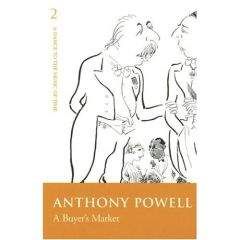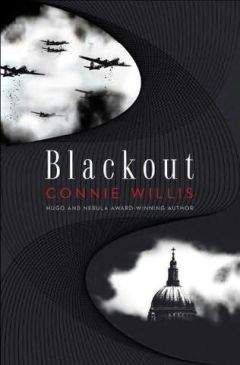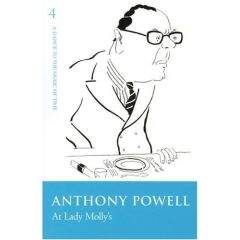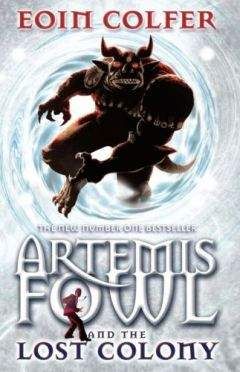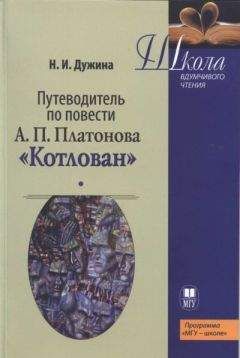W. Ainsworth - Rookwood
"God's will be done," said the sexton; "this is an awful judgment."
"And Sathan cast down; for this is a spice o' his handiwork," muttered Plant; adding, as he slunk away, "If ever Peter Bradley do come to the blanket, dang me if I don't lend a helpin' hand."
| Contents |
CHAPTER IV
THE FUNERAL
WORD being given that the funeral train was fast approaching, the church door was thrown open, and the assemblage divided in two lines, to allow it admission.
Meanwhile, a striking change had taken place, even in this brief period, in the appearance of the night. The sky, heretofore curtained with darkness, was now illumined by a serene, soft moon, which, floating in a watery halo, tinged with silvery radiance the edges of a few ghostly clouds that hurried along the deep and starlit skies. The suddenness of the change could not fail to excite surprise and admiration, mingled with regret that the procession had not been delayed until the present time.
Slowly and mournfully the train was seen to approach the churchyard, winding, two by two, with melancholy step, around the corner of the road. First came Doctor Small; then the mutes, with their sable panoply; next, the torchbearers; next, those who sustained the coffin, bending beneath their ponderous burden, followed by Sir Ranulph, and a long line of attendants, all plainly to be distinguished by the flashing torchlight. There was a slight halt at the gate, and the coffin changed supporters.
"Ill luck betide them!" ejaculated Peter; "could they find no other place except that to halt at? Must Sir Piers be gatekeeper till next Yule? No," added he, seeing what followed; "it will be poor Toft, after all."
Following close upon the coffin came a rude shell, containing, as Peter rightly conjectured, the miserable remains of Simon Toft, who had met his fate in the manner described by Plant. The bolt of death glanced from the tree which it first struck, and reduced the unfortunate farmer to a heap of dust. Universal consternation prevailed, and doubts were entertained as to what course should be pursued. It was judged best by Doctor Small to remove the remains at once to the charnel-house. Thus, "unanointed, unaneled, with all his imperfections on his head," was poor Simon Toft, in one brief second, in the twinkling of an eye, plunged from the height of festivity to the darkness of the grave, and so horribly disfigured, that scarce a vestige of humanity was discernible in the mutilated mass that remained of him. Truly may we be said to walk in blindness, and amidst deep pitfalls!
The churchyard was thronged by the mournful train. The long array of dusky figures—the waving torchlight, gleaming ruddily in the white moonshine—now glistening upon the sombre habiliments of the bearers, and on their shrouded load, now reflected upon the jagged branches of the yew-trees, or falling upon the ivied buttresses of the ancient church, constituted no unimpressive picture. Over all, like a lamp hung in the still sky, shone the moon, shedding a soothing, spiritual lustre over the scene.
The organ broke into a solemn strain, as the coffin was borne along the mid-aisle—the mourners following, with reverent step, and slow. It was deposited near the mouth of the vault, the whole assemblage circling around it. Doctor Small proceeded with the performance of that magnificent service appointed for the burial of the dead, in a tone as remarkable for its sadness, as for its force and fervour. There was a tear in every eye—a cloud on every brow.
Brightly illumined as was the whole building, there were still some recesses which, owing to the intervention of heavy pillars, were thrown into shade; and in one of these, supported by her mother and brother, stood Eleanor, a weeping witness of the scene. She beheld the coffin silently borne along; she saw one dark figure slowly following; she knew those pale features—oh, how pale they were! A year had wrought a fearful alteration; she could scarce credit what she beheld. He must, indeed, have suffered—deeply suffered; and her heart told her that his sorrows had been for her.
Many a wistful look, besides, was directed to the principal figure in this ceremonial, Ranulph Rookwood. He was a prey to unutterable anguish of soul; his heart bled inwardly for the father he had lost. Mechanically following the body down the aisle, he had taken his station near it, gazing with confused vision upon the bystanders; had listened, with a sad composure, to the expressive delivery of Small, until he read—"For man walketh in a vain shadow, and disquieteth himself in vain; he heapeth up riches, and cannot tell who shall gather them."
"Verily!" exclaimed a deep voice; and Ranulph looking round, met the eyes of Peter Bradley fixed full upon him. But it was evidently not the sexton who had spoken.
Small continued the service. He arrived at this verse: "Thou hast set our misdeeds before thee; and our secret sins in the light of thy countenance."
"Even so!" exclaimed the voice; and as Ranulph raised his eyes in the direction of the sound, he thought he saw a dark figure, muffled in a cloak, disappear behind one of the pillars. He bestowed, however, at the moment, little thought upon this incident. His heart melted within him; and leaning his face upon his hand, he wept aloud.
"Command yourself, I entreat of you, my dear Sir Ranulph," said Doctor Small, as soon as the service was finished, "and suffer this melancholy ceremonial to be completed." Saying which, he gently withdrew Ranulph from his support, and the coffin was lowered into the vault.
Ranulph remained for some time in the extremity of sorrow. When he in part recovered, the crowd had dispersed, and few persons were remaining within the church; yet near him stood three apparent loiterers. They advanced towards him. An exclamation of surprise and joy burst from his lips.
"Eleanor!"
"Ranulph!"
"Is it possible? Do I indeed behold you, Eleanor?"
No other word was spoken. They rushed into each other's arms. Oh! sad—sad is the lover's parting—no pang so keen; but if life hath a zest more exquisite than others—if felicity hath one drop more racy than the rest in her honeyed cup, it is the happiness enjoyed in such an union as the present. To say that he was as one raised from the depths of misery, by some angel comforter, were a feeble comparison of the transport of Ranulph. To paint the thrilling delight of Eleanor—the trembling tenderness—the fond abandonment which vanquished all her maiden scruples, would be impossible. Reluctantly yielding—fearing, yet complying, her lips were sealed in one long, loving kiss, the sanctifying pledge of their tried affection.
"Eleanor, dear Eleanor," exclaimed Ranulph, "though I hold you within my arms—though each nerve within my frame assures me of your presence—though I look into those eyes, which seem fraught with greater endearment than ever I have known them wear—though I see and feel, and know all this, so sudden, so unlooked for is the happiness, that I could almost doubt its reality. Say to what blessed circumstance am I indebted for this unlooked-for happiness."
"We are staying not far hence, with friends, dear Ranulph; and my mother, hearing of Sir Piers Rookwood's death, and wishing to bury all animosity with him, resolved to be present at the sad ceremony. We were told you could not be here."
"And would my presence have prevented your attendance, Eleanor?"
"Not that, dear Ranulph; but—"
"But what?"
At this moment the advance of Mrs. Mowbray offered an interruption to their further discourse.
"My son and I appear to be secondary in your regards, Sir Ranulph," said she, gravely.
"Sir Ranulph!" mentally echoed the young man. "What will she think, when she knows that that title is not mine? I dread to tell her." He then added aloud, with a melancholy smile, "I crave your pardon, madam; the delight of a meeting so unexpected with your daughter must plead my apology."
"None is wanting, Sir Ranulph," said Major Mowbray. "I, who have known what separation from my sister is, can readily excuse your feelings. But you look ill."
"I have, indeed, experienced much mental anxiety," said Ranulph, looking at Eleanor; "it is now past, and I would fain hope that a brighter day is dawning." His heart answered, 'twas but a hope.
"You were unlooked for here to-night, Sir Ranulph," said Mrs. Mowbray; "by us, at least: we were told you were abroad."
"You were rightly informed, madam," replied Ranulph. "I only arrived this evening from Bordeaux."
"I am glad you are returned. We are at present on a visit with your neighbours the Davenhams, at Braybrook, and trust we shall see you there."
"I will ride over to-morrow," replied Ranulph; "there is much on which I would consult you all. I would have ventured to request the favour of your company at Rookwood, had the occasion been other than the present."
"And I would willingly have accepted your invitation," returned Mrs. Mowbray; "I should like to see the old house once more. During your father's lifetime I could not approach it. You are lord of broad lands, Sir Ranulph—a goodly inheritance."
"Madam!"
"And a proud title, which you will grace well, I doubt not. The first, the noblest of our house, was he from whom you derive your name. You are the third Sir Ranulph; the first founded the house of Rookwood; the next advanced it; 'tis for you to raise its glory to its height."
"Alas! madam, I have no such thought."
"Wherefore not? you are young, wealthy, powerful. With such domains as those of Rookwood—with such a title as its lord can claim, nought should be too high for your aspirations."
"I aspire to nothing, madam, but your daughter's hand; and even that I will not venture to solicit until you are acquainted with—" And he hesitated.
"With what?" asked Mrs. Mowbray, in surprise.
"A singular, and to me most perplexing event has occurred to-night," replied Ranulph, "which may materially affect my future fortunes."
"Indeed!" exclaimed Mrs. Mowbray. "Does it relate to your mother?"
"Excuse my answering the question now, madam," replied Ranulph; "you shall know all to-morrow."
"Ay, to-morrow, dear Ranulph," said Eleanor; "and whatever that morrow may bring forth, it will bring happiness to me, if you are bearer of the tidings."
"I shall expect your coming with impatience," said Mrs. Mowbray.
"And I," added Major Mowbray, who had listened thus far in silence, "would offer you my services in any way you think they would be useful. Command me as you think fitting."
"I thank you heartily," returned Ranulph. "To-morrow you shall learn all. Meanwhile, it shall be my business to investigate the truth or falsehood of the statement I have heard, ere I report it to you. Till then, farewell!"
As they issued from the church it was grey dawn. Mrs. Mowbray's carriage stood at the door. The party entered it; and accompanied by Doctor Small, whom he found within in the vestry, Ranulph walked towards the hall, where a fresh surprise awaited him.
| Contents |
CHAPTER V
THE CAPTIVE
GUARDED by the two young farmers who had displayed so much address in seizing him, Luke, meanwhile, had been conveyed in safety to the small chamber in the eastern wing, destined, by Mr. Coates, to be his place of confinement for the night. The room, or rather closet, opening from another room, was extremely well adapted for the purpose, having no perceptible outlet; being defended, on either side, by thick partition walls of the hardest oak, and at the extremity by the solid masonry of the mansion. It was, in fact, a remnant of the building anterior to the first Sir Ranulph's day; and the narrow limits of Luke's cell had been erected long before the date of his earliest progenitor. Having seen their prisoner safely bestowed, the room was carefully examined, every board sounded, every crevice and corner peered into by the curious eye of the little lawyer; and nothing being found insecure, the light was removed, the door locked, the rustic constables dismissed, and a brace of pistols having been loaded, and laid on the table, Mr. Coates pronounced himself thoroughly satisfied and quite comfortable.
"Comfortable!" Titus heaved a sigh, as he echoed the word. He felt anything but comfortable. His heart was with the body all the while. He thought of the splendour of the funeral, the torches, the illumined church, his own dignified march down the aisle, and the effect he expected to produce amongst the bewildered rustics. He thought of all these things, and cursed Luke by all the saints in the calendar. The sight of the musty old apartment, hung round with faded arras, which, as he said, "smelt of nothing but rats and ghosts, and such like varmint," did not serve to inspirit him; and the proper equilibrium of his temper was not completely restored until the appearance of the butler, with all the requisites for the manufacture of punch, afforded him some prospective solace.
"And what are they about now, Tim?" asked Titus.
"All as jolly as can be," answered the domestic; "Doctor Small is just about to pronounce the funeral 'ration."
"Devil take it," ejaculated Titus, "there's another miss. Couldn't I just slip out, and hear that?"
"On no account," said Coates. "Consider, Sir Ranulph is there."
"Well, well," rejoined Titus, heaving a deep sigh, and squeezing a lemon; "are you sure this is biling water, Tim? You know, I'm mighty particular."
"Perfectly aware of it, sir."
"Ah, Tim, do you recollect the way I used to brew for poor Sir Piers, with a bunch of red currants at the bottom of the glass? And then to think that, after all, I should be left out of his funeral—it's the height of barbarity. Tim, this rum of yours is poor stuff—there's no punch worth the trouble of drinking, except whisky punch. A glass of right potheen, straw-colour, peat-flavour, ten degrees over proof, would be the only thing to drown my cares. Any such thing in the cellar? There used to be an odd bottle or so, Tim—in the left bin, near the door."
"I've a notion there be," returned Timothy. "I'll try the bin your honour mentions, and if I can lay hands upon a bottle you shall have it, you may depend."
The butler departed, and Titus, emulating Mr. Coates, who had already enveloped himself, like Juno at the approach of Ixion, in a cloud, proceeded to light his pipe.
Luke, meanwhile, had been left alone, without light. He had much to meditate upon, and with nought to check the current of his thoughts, he pensively revolved his present situation and future prospects. The future was gloomy enough—the present fraught with danger. And now that the fever of excitement was passed, he severely reproached himself for his precipitancy.
His mind, by degrees, assumed a more tranquil state; and, exhausted with his great previous fatigue, he threw himself upon the floor of his prison-house, and addressed himself to slumber. The noise he made induced Coates to enter the room, which he did with a pistol in each hand, followed by Titus, with a pipe and candle; but finding all safe the sentinels retired.
"One may see, with half an eye, that you're not used to a feather-bed, my friend," said Titus, as the door was locked. "By the powers, he's a tall chap, anyhow—why, his feet almost touch the door. I should say that room was a matter of six feet long, Mr. Coates."
